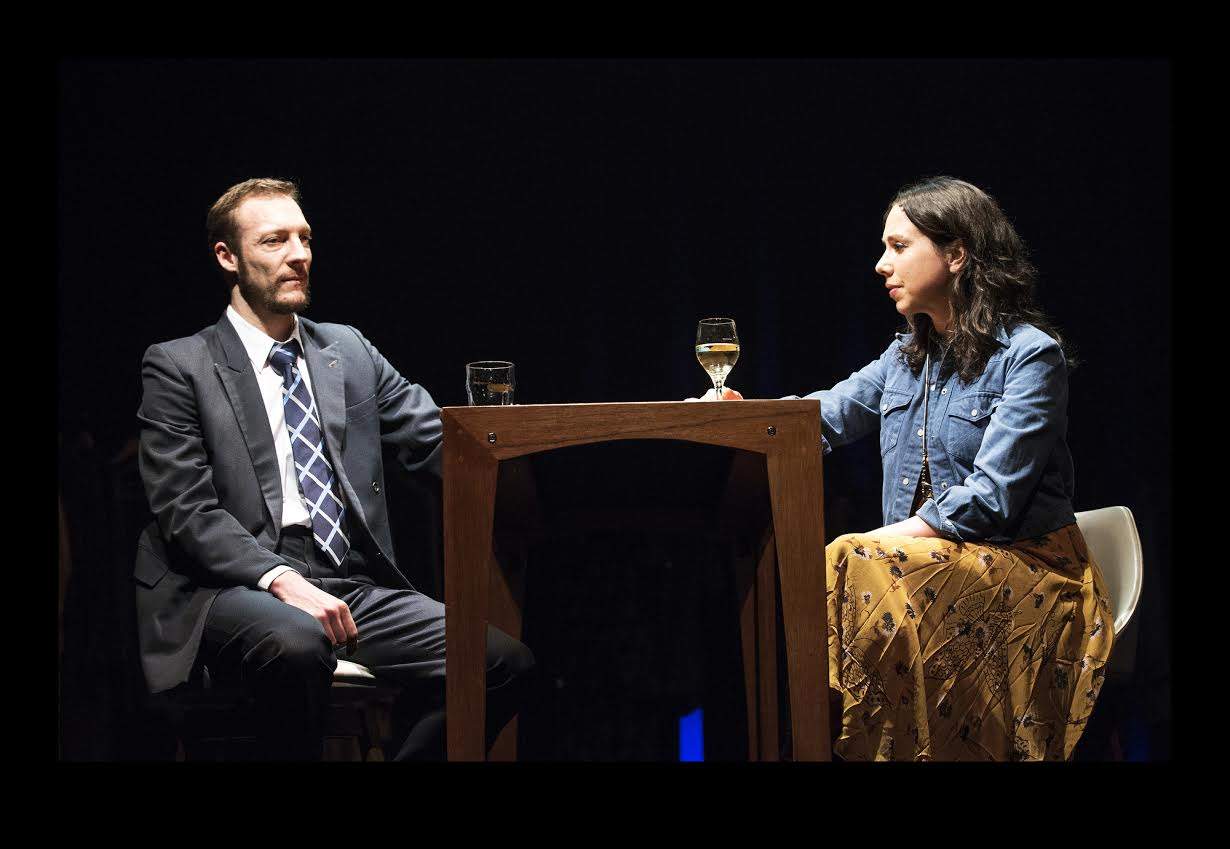Betrayal - State Theatre Company of South Australia
With the recent Ashley Madison hack questioning our regard for fidelity, there's never been a better time to revisit Harold Pinter's classic.
Overview
It’s difficult not to see Betrayal as playwright Harold Pinter’s justification for his own affair with Joan Bakewell. At its core is a message similar to the existentialist theatre of Albert Camus: who can judge these characters in a world where there is no judge, where no-one is innocent?
Emma (Alison Bell) meets her former lover Jerry (Nathan O’Keefe) in a pub, and tells him she’s finally going to leave her husband, Jerry’s best friend. Plagued by guilt, Jerry confesses to Robert (Mark Saturno), only to discover he has known for years, and had affairs of his own. The play’s structure has a kind of reverse chronology — ending with the beginning of the couple’s affair and interspersed with scenes that move forward in time, and director Geordie Brookman draws on the artifice a revolving set and costume-lined stage to emphasise these shifts.
Saturno takes on a gift of a part with relish as her cuckolded (and cuckolding) husband Robert, his delivery steeped in arch, brittle bite. It’s a performance that skates dangerously close to the edge of something like caricature but instead manages to ride the rhythms of subtext and rhythms of Pinter’s text to deeply satisfying effect.
The only flaw in this otherwise excellent State Theatre Company of South Australia production is Jordan Sweeney’s sound design. Even if the advent of digital technology makes the possible choices on offer endless, ironically it seems like the fondness Australian theatre 'composers' have for Logic bundles of glitchy scratches and sub-heavy bass is having a depressing, flattening effect upon our contemporary theatre.
The one upside to the appearance of this well-worn modern palette here, in a production that otherwise hews so closely to the play’s original setting in costume and style, is that it forces us — however bluntly — to reflect upon our modern context’s relationship with the idea of infidelity. This is especially potent at a time when we’ve got access to the kinds of tools that would facilitate the characters various 'betrayals' — whether websites like Ashley Madison, or dating apps like Tinder.





